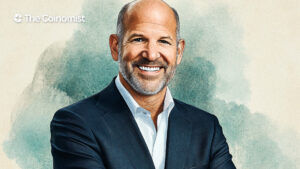The Memecoin Market Will Mature by 2030: CryptoQuant CEO

Ki Young Ju, the CEO of CryptoQuant, a platform that focuses on on-chain analytics, recently shared some interesting thoughts about the meme coin market. He drew comparisons between the meme coin market and the art market.
In a post on X (formerly Twitter), Ki Young Ju pushed back against criticism over memecoins and that they are a scam.
If the very foundation of the meme coin market is considered a scam, then, by the same logic, the art market must also be viewed as a scam.
– he mentioned.
Meme coins have definitely been a huge trend in the crypto world—pretty much everyone’s heard of Dogecoin or Shiba Inu at this point. As of 2025, they continue to be popular. According to CoinMarketCap, the total market cap of meme coins is above $87 billion at the time of writing.
Ki Young Ju thinks that while the hype around meme coins will eventually calm down, they’re not going anywhere. By 2030, he expects the meme coin market to mature, growing into something more established and less reliant on hype. It might take some time, but he believes the market will overcome its current obstacles and negativity.
That said, he also predicts that the meme coin market is likely nearing what he calls the “peak of inflated expectations.” This is the stage where the hype is at its highest, and things could take a sharp dip. But that doesn’t mean the meme coin space will disappear entirely – it’ll just go through a correction and start to settle down.
He also compared the current criticism of meme coins to the criticism Bitcoin faced 10 years ago when there was speculation that Bitcoin was linked to drug deals and money laundering. In the same way, meme coins are getting a lot of negative attention now, but Ki Young Ju sees that as a phase the market will eventually grow out of.
Looking ahead, Ki Young Ju believes that practices to protect investors from things like rug pulls in the meme coin market could eventually come into play.
The content on The Coinomist is for informational purposes only and should not be interpreted as financial advice. While we strive to provide accurate and up-to-date information, we do not guarantee the accuracy, completeness, or reliability of any content. Neither we accept liability for any errors or omissions in the information provided or for any financial losses incurred as a result of relying on this information. Actions based on this content are at your own risk. Always do your own research and consult a professional. See our Terms, Privacy Policy, and Disclaimers for more details.




















